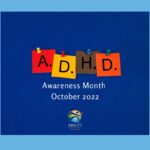
Attention-Deficit/Hyperactivity Disorder (ADHD) is a common neurodevelopmental disorder that affects both children and adults. Characterized by symptoms such as inattention, hyperactivity, and impulsivity, ADHD can significantly impact daily functioning and quality of life. While conventional medical treatments, primarily stimulant medications, are widely used and effective for many, there is growing interest in natural and holistic ADHD treatments. This article explores these alternative approaches, examining their effectiveness and role in managing ADHD symptoms.
Understanding ADHD and Its Traditional Treatments
What is ADHD?
ADHD is a disorder marked by a persistent pattern of inattention and/or hyperactivity-impulsivity that interferes with functioning or development. It affects approximately 5-10% of children and about 2-5% of adults globally. The exact cause of ADHD remains unknown, but it is believed to involve genetic, environmental, and neurological factors.
Conventional ADHD Treatments
The most common treatments for ADHD involve stimulant medications such as methylphenidate (Ritalin) and amphetamines (Adderall). These medications can help increase attention and reduce hyperactivity and impulsivity in patients. Non-stimulant medications, like atomoxetine (Strattera) and guanfacine, are also used, especially when stimulants are ineffective or cause significant side effects.
The Rise of Natural and Holistic ADHD Treatments
Why Consider Alternative Treatments?
While traditional ADHD medications are effective for many, they are not without side effects, which can include sleep problems, decreased appetite, and mood swings. Additionally, some individuals may prefer not to use medication, seeking a more natural approach to managing their symptoms.
Types of Natural and Holistic ADHD Treatments
- Dietary Interventions
- Nutritional Supplements
- Behavioral Therapies
- Mindfulness and Meditation
- Exercise
- Herbal Remedies
Evaluating the Effectiveness of Natural Treatments
Dietary Interventions
Dietary changes are often recommended as part of a holistic ADHD treatment plan. Some approaches include:
- Elimination Diets: These diets remove potential allergens or food additives that may exacerbate ADHD symptoms. The Feingold Diet, which eliminates artificial colors, flavors, and preservatives, is one such example.
- Omega-3 Fatty Acids, Found in fish oil, have been shown in some studies to improve cognitive function and reduce ADHD symptoms.
Effectiveness: Evidence supporting dietary interventions is mixed. Some studies suggest a modest benefit, particularly with omega-3 supplements, but more research is needed to confirm these findings.
Nutritional Supplements
Specific vitamins and minerals are believed to play a role in brain function and behavior:
- Zinc: Low levels of zinc have been associated with ADHD symptoms. Supplementation may help, particularly in individuals with a deficiency.
- Iron: Like zinc, low iron levels can exacerbate ADHD symptoms, and supplementation may be beneficial.
Effectiveness: Some studies indicate that these supplements can be helpful, especially in individuals with deficiencies. However, the evidence is insufficient to recommend widespread use without medical supervision.
Behavioral Therapies
Behavioral interventions focus on modifying the behaviors associated with ADHD. These include:
- Cognitive Behavioral Therapy (CBT) helps individuals develop coping strategies and skills to manage their symptoms.
- Parent Training: This program teaches parents how to effectively manage their children’s behavior and improve their children’s functioning at home and school.
Effectiveness: Behavioral therapies have strong evidence supporting their efficacy, particularly when combined with other treatments. They are considered a vital component of a comprehensive ADHD treatment plan.
Mindfulness and Meditation
Mindfulness-based interventions aim to improve attention and self-regulation through meditation and yoga.
Effectiveness: Research suggests mindfulness and meditation can reduce ADHD symptoms and improve emotional regulation. These practices are especially beneficial as complementary therapies.
Exercise
Regular physical activity is known to have numerous benefits for mental health and cognitive function. Exercise can help reduce ADHD symptoms by:
- Increasing dopamine levels in the brain, which are often lower in individuals with ADHD.
- Improving mood and reducing anxiety.
Effectiveness: Studies consistently show that exercise can be an effective natural treatment for ADHD. It is recommended as part of a holistic approach to managing symptoms.
Herbal Remedies
Herbal supplements such as ginkgo biloba, ginseng, and bacopa monnieri are sometimes used to treat ADHD symptoms.
Effectiveness: The evidence for herbal remedies must be more consistent. While some individuals report benefits, more rigorous research is required to confirm their efficacy and safety.
Combining Conventional and Holistic Treatments
Integrated Approaches
Many experts advocate for an integrated approach to ADHD treatment, combining conventional medications with natural and holistic therapies. This can help address symptoms from multiple angles and provide a more comprehensive management plan.
Personalized Treatment Plans
ADHD is a highly individual disorder, and what works for one person may not work for another. Personalized treatment plans that consider personal preferences, symptoms, and responses to treatments are crucial for effective management.
Conclusion: Do Natural and Holistic ADHD Treatments Work?
Natural and holistic ADHD treatments offer promising alternatives or complement to conventional medications. While some approaches, such as behavioral therapies and exercise, have strong evidence supporting their effectiveness, others, like dietary changes and nutritional supplements, show potential but require more research. An integrated and personalized treatment plan, combining the best of conventional and holistic methods, is often the most effective way to manage ADHD symptoms and improve quality of life.
In conclusion, while natural and holistic ADHD treatments can work for some individuals, their effectiveness varies. It is essential to approach these treatments with an open mind and a critical eye, always considering the latest scientific evidence and consulting with healthcare professionals to ensure a safe and effective ADHD treatment plan.